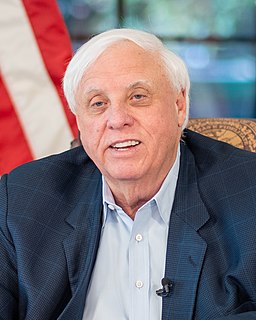A Quote by Thomas Paine
Society in every state is a blessing, but government, even in its best stage, is but a necessary evil; in its worst state an intolerable one.
Quote Topics
Related Quotes
Some writers have so confounded society with government, as to leave little or no distinction between them; whereas they are not only different, but have different origins ... Society is in every state a blessing, but Government, even in its best state, is but a necessary evil; in its worst state, an intolerable one.
Society in every state is a blessing, but government even in its best state is but a necessary evil; in its worst state an intolerable one; for when we suffer, or are exposed to the same miseries by a government, which we might expect in a country without government, our calamity is heightened by reflecting that we furnish the means by which we suffer.
Now when you meditate, try to meditate in a sustained way, first of all sustain it. Then you find that you are getting into the state of Samadhi, means at a state where you start feeling the joy and the bliss of God's blessings, and then you start saying "O God, what a blessing, what a blessing, and what a blessing". Once you have reached that state then you have to realize "Who am I". Who are you? What are you? You are the Spirit. After establishing your sustained attention on the Spirit you'll develop a state where you'll be in a complete state of witnessing with joy.
The natural aristocracy I consider as the most precious gift of nature for the instruction, the trusts, and government of society. And indeed it would have been inconsistent in creation to have formed man for the social state, and not to have provided virtue and wisdom enough to manage the concerns of the society. May we not even say that that form of government is the best which provides the most - for a pure selection of these natural aristoi into the offices of government?
The Declaration [of Independence] was not a protest against government, but against the excess of government. It prescribed the proper role of government, to secure the rights of individuals and to effect their safety and happiness. In modern society, no individual can do this alone. So government is not a necessary evil but a necessary good.
The State, of course, is absolutely indispensable to the preservation of law and order, and the promotion of peace and social cooperation. What is unnecessary and evil, what abridges the liberty and threatens the true welfare of the individual, is the State that has usurped excessive powers and grown beyond its legitimate function - the super-State, the socialist State, the redistributive State, in brief, the ironically misnamed 'Welfare State.'
It is not the ownership of the instruments of production which it is important for the State to assume. If the State is able to determine the aggregate amount of resources devoted to augmenting the instruments and the basic rate of reward to those who own them, it will have accomplished all that is necessary. Moreover, the necessary measures of socialization can be introduced gradually and without a break in the general traditions of society.
It is unfortunately none too well understood that, just as the State has no money of its own, so it has no power of its own. All the power it has is what society gives it, plus what it confiscates from time to time on one pretext or another, there is no other source from which State power can be drawn. Therefore every assumption of State power, whether by gift or seizure leaves society with so much less power; there is never, nor can be, any strengthening of State power without a corresponding and roughly equivalent depletion of social power.
The United States has entered the ranks of the failed states. One of the most remarkable manifestations of a failed state is that the criminals are all inside the government operating against the people, whereas in a normal state, the criminals are on the outside of the government, operating against it. So, we now have every manifestation of being a failed state, with the government in the hands of a few Wall Street gangsters.
For centuries it was never discovered that education was a function of the State, and the State never attempted to educate. But when modern absolutism arose, it laid claim to everything on behalf of the sovereign power....When the revolutionary theory of government began to prevail, and Church and State found that they were educating for opposite ends and in a contradictory spirit, it became necessary to remove children entirely from the influence of religion.
In the first place, the church can ask the state whether its actions are legitimate and in accordance with its character as state, i.e., it can throw the state back on its responsibilities. Secondly, it can aid the victims of state action. The church has an unconditional obligation to the victims of any ordering of society, even if they do not belong to the Christian community. The third possibility is not just to bandage the victims under the wheel, but to put a spoke in the wheel itself.

































